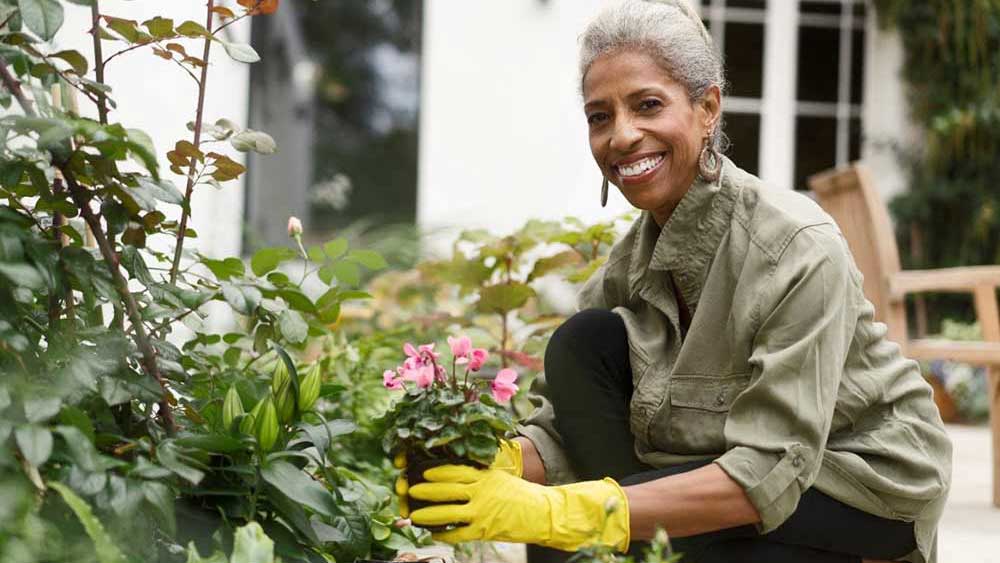

The Role of Motivation in Healthy Aging
We hear a lot about the concept of “healthy aging”—but what does that mean? It doesn’t necessarily mean the absence of health problems, say experts at the World Health Organization, who recently defined healthy aging as “the process of developing and maintaining the functional ability that enables well-being in older age.” Well-being might include not only health of the body and brain, but also social and financial health, and the ability to access systems and supports that help us overcome any challenges we might face.
For most of us, healthy aging doesn’t just happen. We need to make an effort to exercise, eat well, stay socially connected and manage our financial affairs. Yet especially when we’re younger, it’s so tempting to live for the moment and make unhealthy choices that lower our odds of healthy aging. Experts say the key is to keep our long-term goals in mind.
Recognizing how important this is, the Gerontological Society of America (GSA) recently released extensive research on the role of motivation in healthy aging. Contributing authors from the fields of psychology, neuroscience, gerontology, health design and public health examined motivation through the various lenses of their professions. “Motivation is the royal road to understanding healthy aging,” they all agreed. (These studies are free to read online.)
Here are some helpful tips based on these and other studies on motivation and healthy aging:
Create goals early on. It’s tempting to just live in the moment. Should we exercise, or sit on the couch and binge watch a TV show? Should we take the time to prepare a salad, or throw a frozen pizza into the microwave? Should we buy a pricey new car, or put that money into our retirement account? Should we go to the dentist, or put it off? To overcome our short-term impulses, it helps to consider our aspirations—goals such as “I want to be healthy enough to play with my grandchildren,” or “I want to save enough money to travel once I retire,” or “I value my independence and I want to avoid disabilities that could force me to give up driving.”
Adjust your goals over the years. The GSA research revealed that goals typically change throughout life to reflect new priorities. But being flexible doesn’t mean we’ve given up—just that we’re growing. For example, when we’re younger, rising high in our chosen career might be a major aspiration. But later on, we might focus more on building our legacy and making a difference in the world.
Recognize and address challenges to motivation. Psychologists say apathy—a lack of interest and enthusiasm—is common among older adults with depression, anxiety or dementia. But experts note that even normal brain changes of aging can be a factor. Psychology professor Hermundur Sigmundsson of the Norwegian University of Science and Technology puts this in terms of “passion” and “grit”: “Our passion controls the direction of the arrow, what we’re fired up about and want to achieve. Grit drives our strength, how much effort we are willing to put in to achieve something,” says Sigmundsson. “Research confirms what a lot of folks have guessed: As we age, motivation wanes and getting off the couch and out the door becomes more challenging.”
Seek out adaptations to keep goals within reach. When we face health problems or other challenges in our later years, healthy aging might mean adapting to the “new normal.” GSA experts explain that assistive devices, robotic gadgets, self-driving cars and other technologies can keep goals within reach for older adults. And human help also is vital. People need people! One study author noted, “Some devices help older adults go about their daily lives without having to resort to other people’s help, which may promote a sense of control—but may also reduce social interaction.”
How family can help
GSA experts note that with age, most people are increasingly motivated by spending time with family and close friends. We can spend some of that time helping our elders focus on their goals.
Support older loved ones as they reshape goals. Encourage their new interests and talk about their new focus in life. Your enthusiasm can be contagious!
Generations can motivate each other. Younger family members benefit from the experience and advice of their elders, and giving this advice provides a boost of self-esteem for seniors. Talk about topics like these: “If you knew what you know now, what would you have done differently?” “How did your life choices affect your life now?”
Express your appreciation that your loved one is following healthy aging steps. Making you happy is likely a top motivator for older relatives! Share that approval: “I love seeing you do your exercise video, Dad!” “That is a really healthy lunch, Mom!” “I’m so glad you decided to make that physical therapy appointment, Grandpa!”
Offer help and support. Your loved one might need help with transportation or with managing their health care appointments or finances. Though older adults sometimes balk when family offer help, your loved one is less likely to see it as “interference” if they see that you respect their goals. Help them locate services that support those goals.
In-home care supports the goals of clients
Professional in-home care is an increasingly popular intervention for helping older adults continue doing what they love, even as they face limitations. Right at Home experts keep client goals in mind at every step. Trained caregivers help clients eat well and safely exercise to maintain function. They help clients keep their “social muscles” in shape as well, providing companionship, transportation, and grooming and dressing so clients feel at their best interacting with other people. A major goal of most older adults is to live independently at home. Home care supports that goal.







